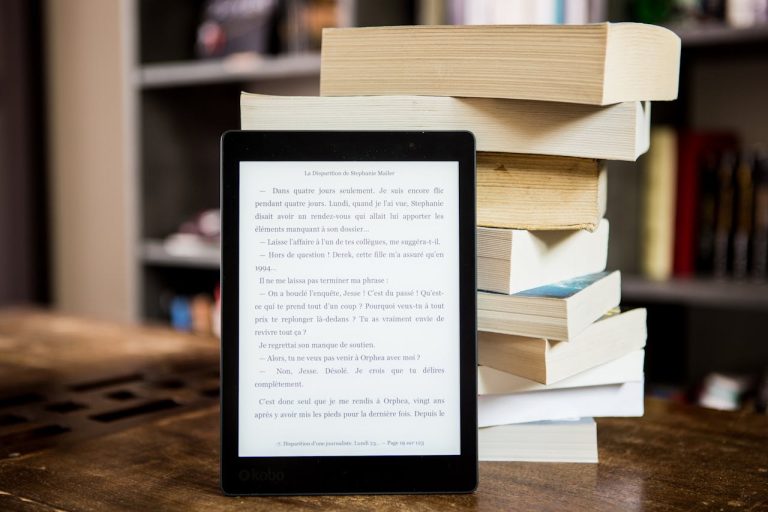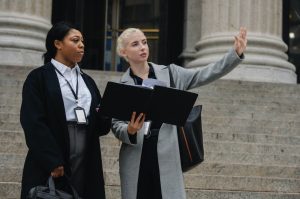The Society for Advancing Business Editing and Writing (SABEW) recently announced the 22 books they shortlisted for their annual Best in Business Book Awards. Additionally, it was just announced that the 1974 book, The Power Broker by Robert Caro (a must read for many business journalists) is finally getting a digital edition this month after the author at last agreed to allow a digital version, believing that an electronic screen would diminish the reading experience.
These announcements have us thinking about the publishing industry again and a topic we’ve been wanting to dive deeper into: the history of eBooks. In a tip this summer, we discussed the popularity of both physical books and eBooks, naming some key ways eBooks are boosting accessibility. Notably, increasing accessibility was also the driving force behind many of the early pioneers of eReaders and eBooks. Their goal of expanding access to knowledge helped lead to the development of the technology so many enjoy today – the pursuit of profit didn’t enter the picture until much later.
The godfather of the E-Reader
Dubbed the “Godfather of the E-Reader” by The New York Times, Bob Brown is often credited with lighting the spark that would eventually lead to the invention of eBooks as we know them today. In 1930, he wrote a book about the invention that he believed would “rid the reader of the cumbersome book” and begin “a bloody revolution of the word.” He titled his book “The Readies” as he was initially inspired after watching his first “talkie” (movie with sound).
He described that this future invention would be “a simple reading machine which I can carry or move around, attach to any old electric light plug and read hundred-thousand-word novels in 10 minutes if I want to” – you can play with a version of what it may have been like here. He also argued the invention “would allow readers to adjust the type size, avoid paper cuts and save trees.” Although he never attempted to create the machine and moved on to other pursuits, it was not the end for eReaders.
A school teacher’s pursuit
In 1948, Ángela Ruiz Robles, a school teacher in Spain, invented a machine to make learning easier for her students. What she called the “Mechanical Encyclopedia” was a textbook-sized machine that contained three spools that could hold scrolls of text or drawings that could easily be swapped out. The machine was operated by a battery, used a small air compressor, and contained a lightbulb to allow users to read in the dark.
Although she was able to secure a patent and prototype, Ruiz Robles was unable to secure funding to manufacture the device. Although she received offers from manufacturers in the United States, she declined the offers insisting the device needed to be made in Spain and never stopped trying to make it happen.
Project Gutenberg
In 1971, Michael Hart began, what would later be named, Project Gutenberg by manually typing up the U.S. Declaration of Independence as a student at the University of Illinois. This officially made the Declaration of Independence the first eBook.
At the time, computers were rather rare to have access to (for context, 1971 is the same year the very first email was ever sent) and were predominately used for data processing. However, Hart believed that the “greatest value created by computers would not be computing, but would be the storage, retrieval, and searching of what was stored in our libraries.”
Over the next few decades Hart would continue to manually type up historical documents and books that were in the public domain. Eventually, with the help of thousands of volunteers and the invention of the internet, he created what is now the oldest digital library, with over 70,000 free eBooks.







